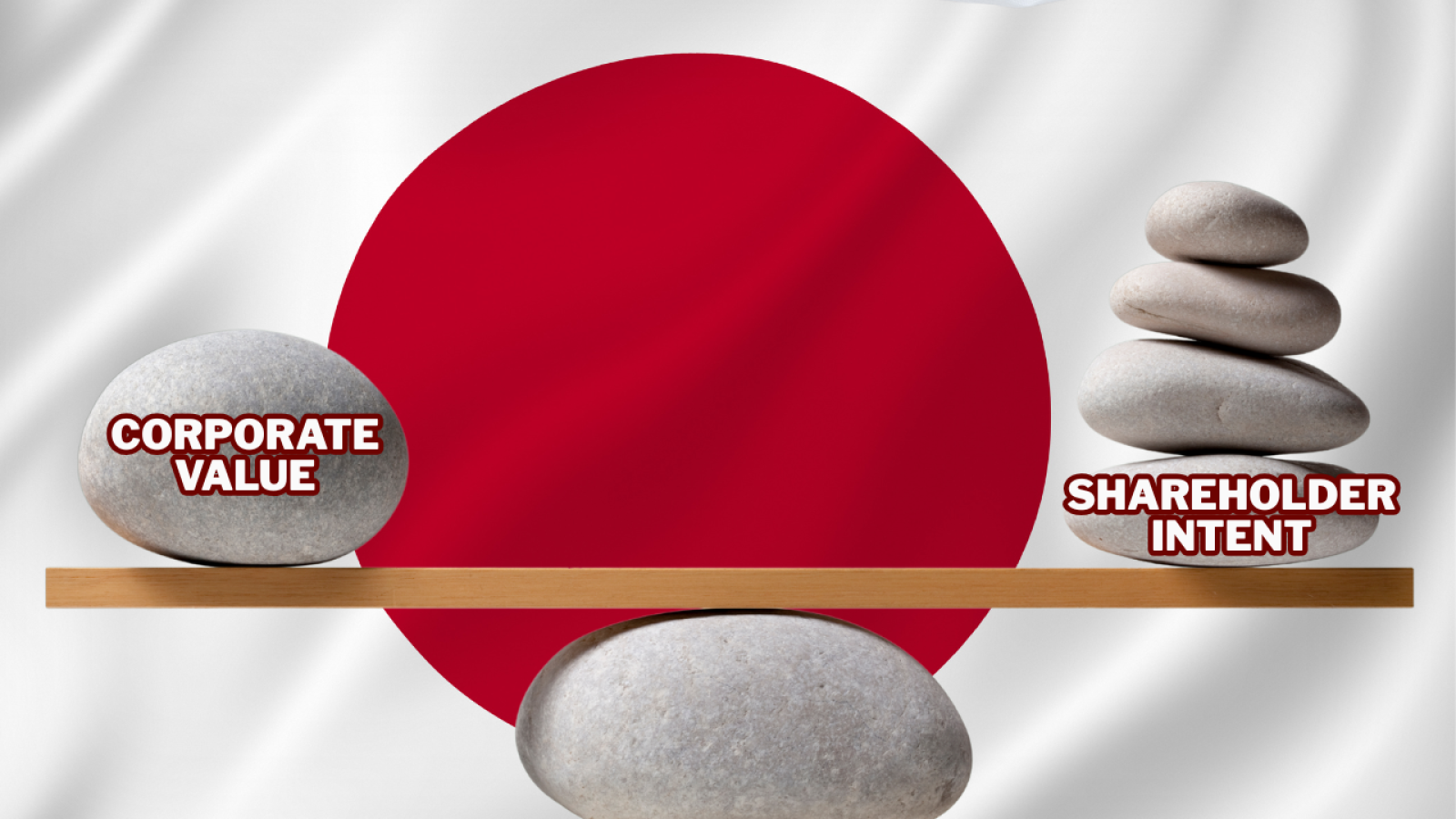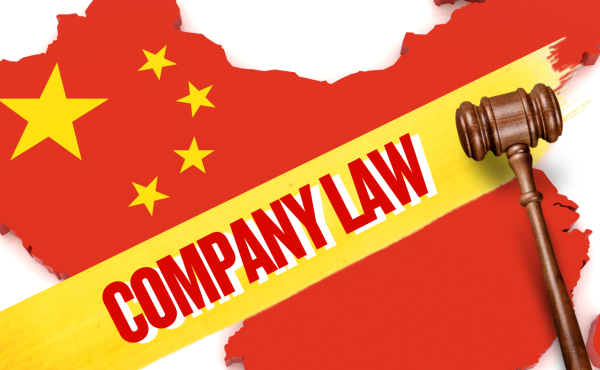
The ECGI blog is kindly supported by

Beyond Anglo-American Models: Japan’s Unique Approach to M&A
As debates over shareholder activism and corporate takeovers intensify worldwide, Japan has quietly emerged as the second-largest activist market. Its rise rests on a legal framework that differs markedly from the Anglo-American models dominating global discussions. In my ECGI Working Paper, Beyond Anglo-American Models: Japan’s Unique Approach to M&A and Its Impact on Shareholder Activism and Sustainability, I explain how Japan has built a coherent “third path” in takeover regulation that blends a corporate value standard with deference to shareholder intent, permits partial tender offers, and resists low-threshold anti-activist poison pills. This is not a partial transplant of U.S. or European rules; it is a rational system in its own right.
Corporate value, shareholder intent, and who decides
Japanese takeover law evaluates whether an acquisition is desirable by asking whether it enhances corporate value, not focusing solely on price. This standard appears in court decisions and in the Ministry of Economy, Trade and Industry’s (METI) soft-law guidelines, placing corporate value at the heart of both deal evaluation and the legality of defensive measures.
At the same time, courts have developed a clear principle respecting shareholder intent in contests for control: pills triggered without shareholder approvals are generally enjoined, while shareholder-ratified pills are upheld. The Supreme Court’s Bulldog Sauce decision crystallized this approach, with later cases refining it in practice. METI’s 2023 Guidelines for Corporate Takeovers adopt identical logic.
This creates a practical tension. Shareholders may rationally favor the highest bid price, even when that offer would not maximize long-term corporate value. The question, then, is whose judgment should prevail when price and value diverge. My analysis argues for a second-best but principled equilibrium: boards should not be permitted to trigger pills without shareholder approval merely because they believe a transaction would reduce value. That discretion invites abuse and would chill bids ex ante. Requiring shareholder approval preserves the corporate value standard as a lodestar while keeping the final decision in the hands of those to whom the company ultimately belongs.
The case for partial tender offers
A second feature of Japan’s “third path” is its tolerance of partial tender offers. Unlike the United Kingdom and many European regimes, which generally prohibit partial bids once control is at stake, Japan allows acquirers to seek control without purchasing all outstanding shares. Critics argue that partial bids are coercive or unfair to minority shareholders. The evidence points in the opposite direction.
Reviewing nearly two decades of data, I examine 196 partial tender offers between 2008 and 2024. On average, targets earned positive long-term stock returns after the bid closed, and operating performance – measured by ROE and ROA – improved over the three years following the offer. These patterns hold even when I focus on the subsample where settlement occurred pro-rata. I find no systematic harm to corporate or shareholder value; the typical partial bid is associated with improvement. Japan therefore has sound reasons to permit partial takeovers rather than to import a blanket European-style prohibition.
The structure of partial bids also sharpens shareholder incentives to think about value, not just price. If some shares remain after settlement, the expected value of that residual stake turns on the acquirer’s ability to improve the business, pushing investors to look beyond the takeover premium.
Why Japan resists anti-activist pills
Japan’s approach to activism is equally distinctive. U.S. companies have increasingly turned to “anti-activist” pills with 5 to 10 percent triggers. In Japan, such pills would be difficult to justify. A 10 percent stake does not confer control and does not threaten corporate value. Consistent with case law and METI’s guidelines, courts require a credible showing that a would-be controller’s actions pose a real risk to value before permitting discriminatory measures. In practice, activists’ proposals are tested in the marketplace of shareholder votes, not blocked pre-emptively. The Mitsuboshi decision also illustrates that when a pill’s design would distort shareholder choice – such as sweeping “acting in concert” clauses that chill ordinary proxy activity – courts will intervene. The result is a framework that empowers shareholder deliberation while limiting managerial discretion to deploy pills against dissenting owners.
Sustainability: what the corporate value lens does – and does not – see
The corporate value standard has clear implications for sustainability. Environmental and social factors matter to the extent they are reflected in corporate value. Directors cannot lawfully justify takeover defenses by appealing to stakeholder interests not internalized in value; nor can courts sustain such defenses on that basis. This does not preclude sustainability-minded management within the bounds of directors’ duties, but takeover law is an ill-suited vehicle for protecting interests that markets do not yet price. If sustainability objectives are to carry decisive weight in control contests, they must be anchored in mandatory regulation outside the Companies Act and takeover rules. In short, activism is empowered by the current framework; sustainability – where not priced into value – is not.
What this “third path” means
For boards, the message is straightforward. Corporate value is the governing standard, but unilateral defensive action will not do. Directors must persuade shareholders; without their approval, most pills will fail. For investors and activists, the playing field is open. Outcomes turn on shareholder choice – in approving defenses and in deciding which bidder should prevail. That dynamic helps explain Japan’s growth as an activist market and differentiates it from Delaware’s board-centric model and the EU’s mandatory-bid approach. For policymakers, the lesson is that legal transplantation need not end in convergence. Japan’s regime shows that it is possible to build a coherent alternative by combining a value-based standard with shareholder primacy and by allowing partial bids subject to disclosure, deliberation, and equal treatment. The trade-off is transparent: where markets do not price social externalities, sustainability will be under-protected unless public law fills the gap.
Japan’s takeover regime is not an incomplete version of Anglo-American or European law. It is a deliberate “third path” that places corporate value at the center, relies on shareholder approval to legitimate powerful defenses, tolerates partial tender offers that – on the evidence – often improve outcomes, and resists low-threshold pills aimed at activists. The model has trade-offs: shareholder intent will not always track long-term value, and sustainability claims that lie outside corporate value will not carry the day. Nevertheless, the system is internally consistent and normatively defensible. It offers a viable alternative for jurisdictions searching beyond familiar templates – and it clarifies where complementary regulation is needed to meet broader social goals.
__________
“I would like to thank Professor Dan W. Puchniak for his significant contributions to preparing this blog post.”
— Hidefusa Iida
__________
Hidefusa Iida is a Professor of Law in the Graduate Schools for Law and Politics at the University of Tokyo.
__________
This blog is based on a paper presented at the Asian Corporate Law Forum (ACLF). Visit the event page to explore more conference-related blogs.
The ECGI does not, consistent with its constitutional purpose, have a view or opinion. If you wish to respond to this article, you can submit a blog article or 'letter to the editor' by clicking here.



